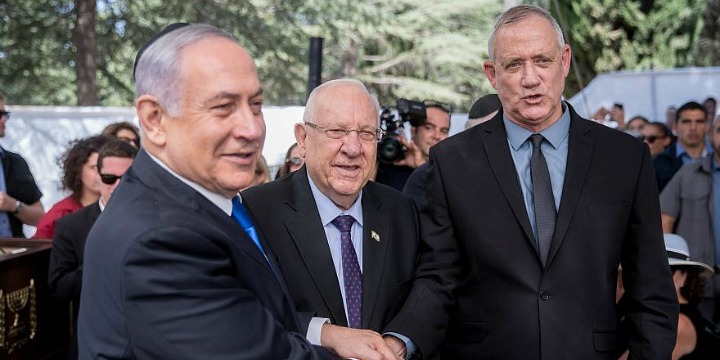President Reuven Rivlin gave the Knesset the mandate after Benny Gantz, its previous holder and the leader of the Blue and White alliance, failed to form a government before a Wednesday deadline.
"I hope that the Knesset members will be able to form a majority in such a way that a government can be formed as soon as possible, and to prevent a fourth round of elections," he said in a statement.
Teams from Gantz's alliance and from Prime Minister Benjamin Netanyahu's Likud party are continuing to meet in order to form a "national emergency government," according to a joint statement.
With the mandate in the Knesset, any lawmaker - including Gantz and Netanyahu - who can gain the support of 61 others in the 120-seat Knesset within 21 days will have two weeks to form a government.
If that fails, Israel will hold its fourth election since April 2019.
According to media reports, one of the main sticking points is Likud's demand for veto rights on judicial appointments. In addition, an agreement was discussed in which new elections would be held if the Supreme Court denied Netanyahu the prime minister position because of his corruption charges.
Netanyahu is charged with offering political favours to media moguls and wealthy businessmen in return for positive media coverage and expensive gifts, though he has denied any wrongdoing. His trial is set to begin in May, after being postponed due to the coronavirus.
"I hope that the Knesset members will be able to form a majority in such a way that a government can be formed as soon as possible, and to prevent a fourth round of elections," he said in a statement.
Teams from Gantz's alliance and from Prime Minister Benjamin Netanyahu's Likud party are continuing to meet in order to form a "national emergency government," according to a joint statement.
With the mandate in the Knesset, any lawmaker - including Gantz and Netanyahu - who can gain the support of 61 others in the 120-seat Knesset within 21 days will have two weeks to form a government.
If that fails, Israel will hold its fourth election since April 2019.
According to media reports, one of the main sticking points is Likud's demand for veto rights on judicial appointments. In addition, an agreement was discussed in which new elections would be held if the Supreme Court denied Netanyahu the prime minister position because of his corruption charges.
Netanyahu is charged with offering political favours to media moguls and wealthy businessmen in return for positive media coverage and expensive gifts, though he has denied any wrongdoing. His trial is set to begin in May, after being postponed due to the coronavirus.









 Home
Home Politics
Politics











